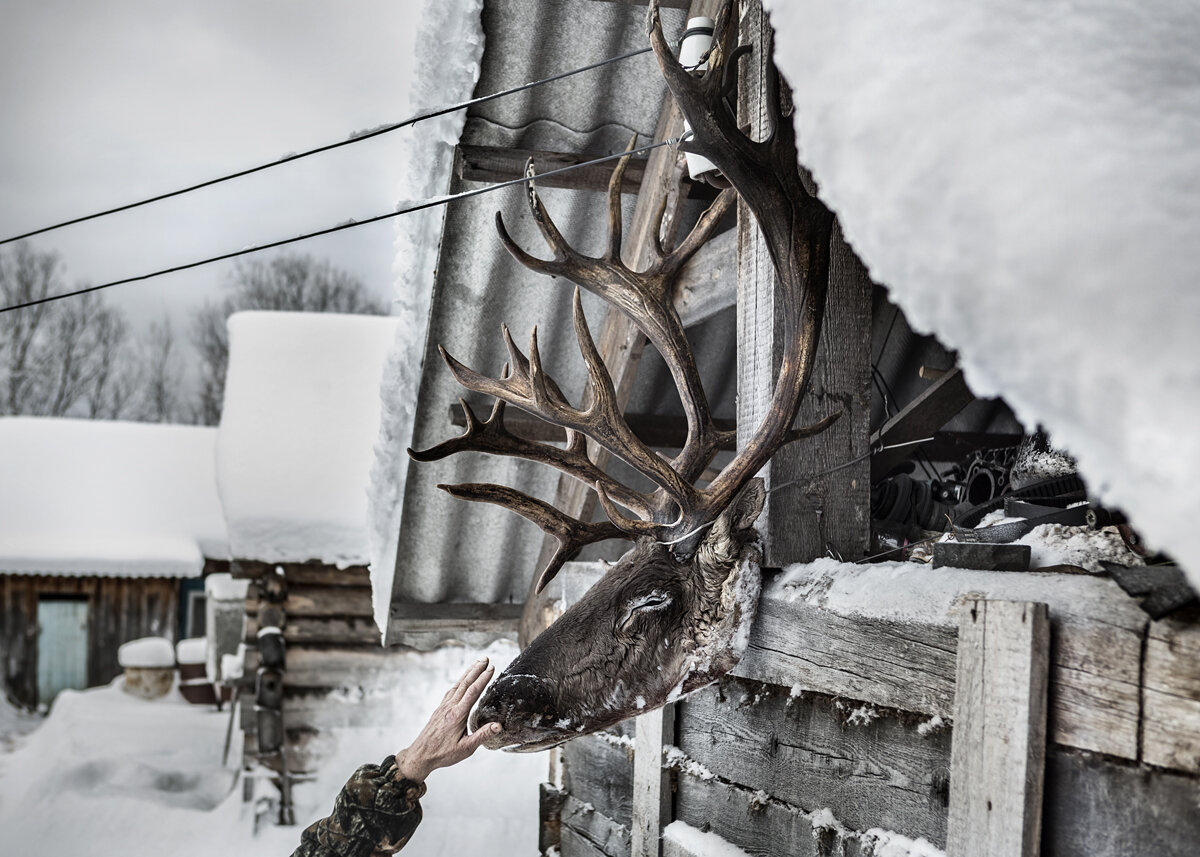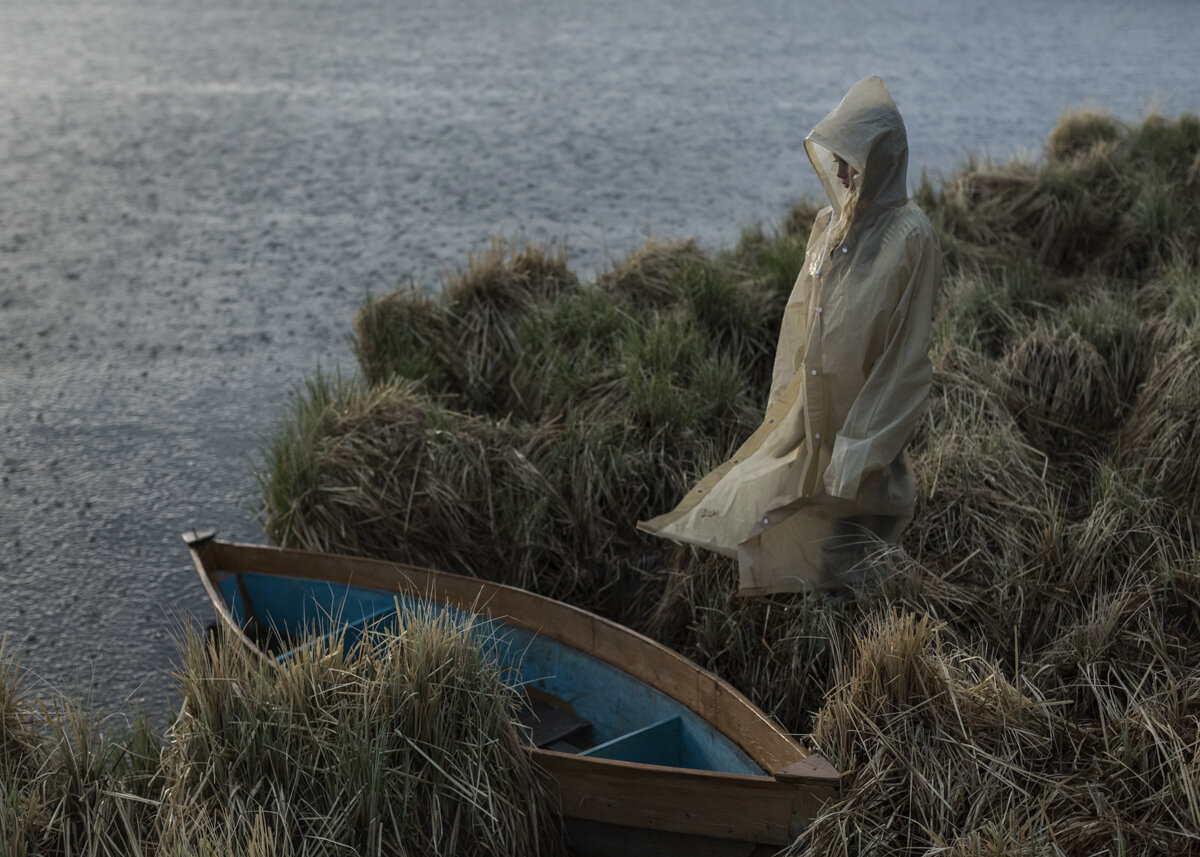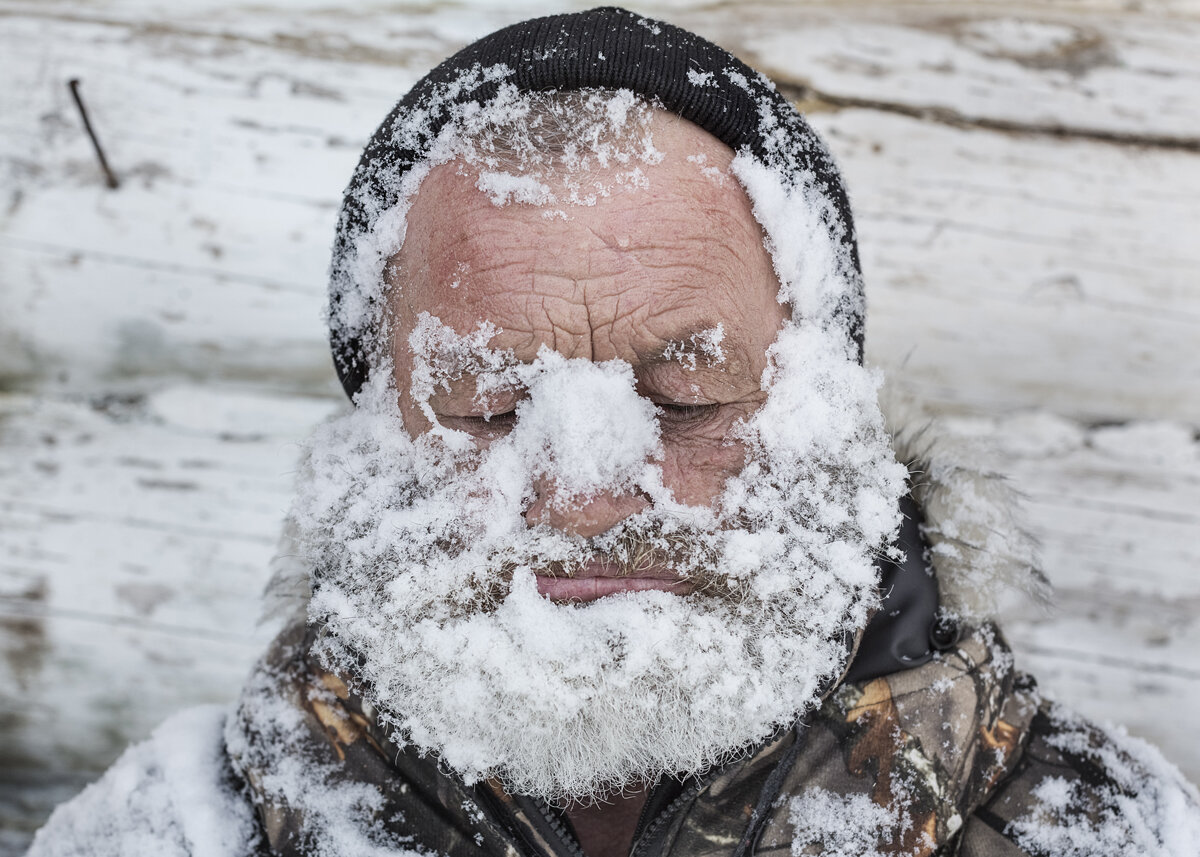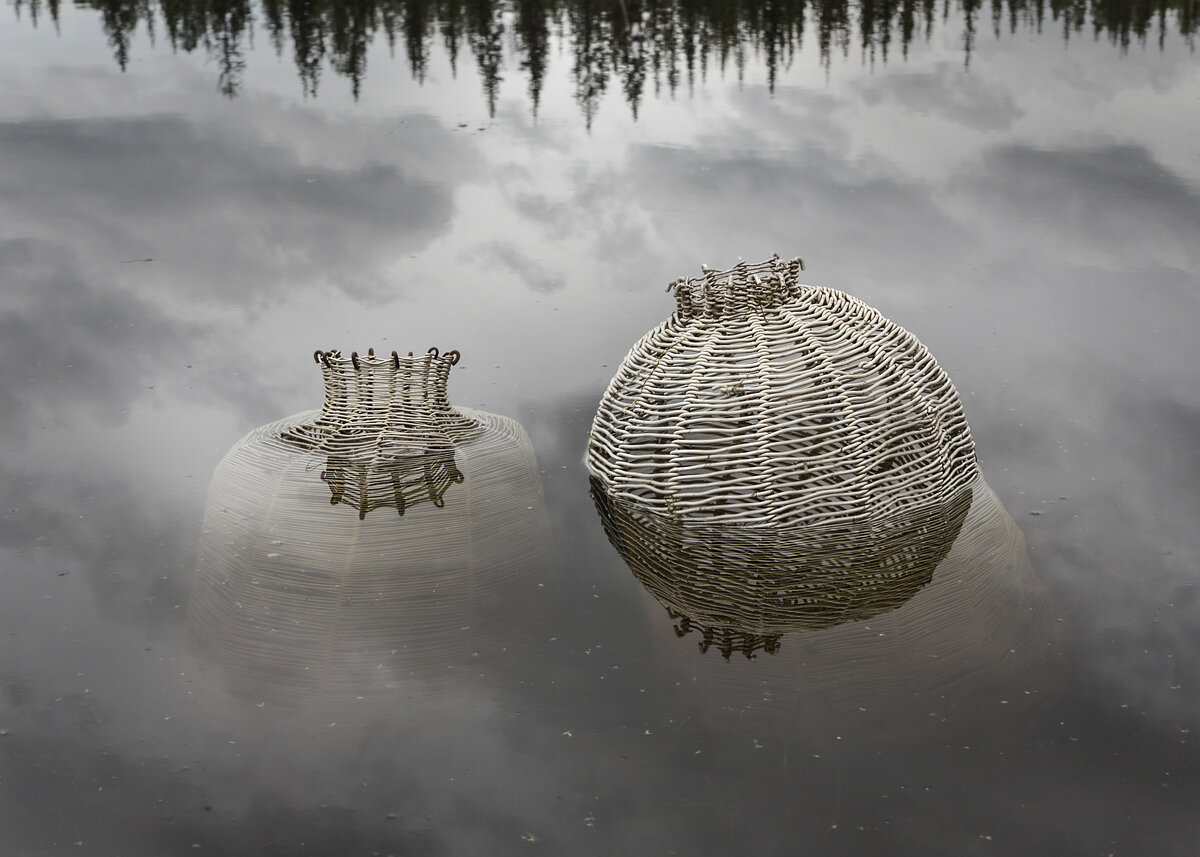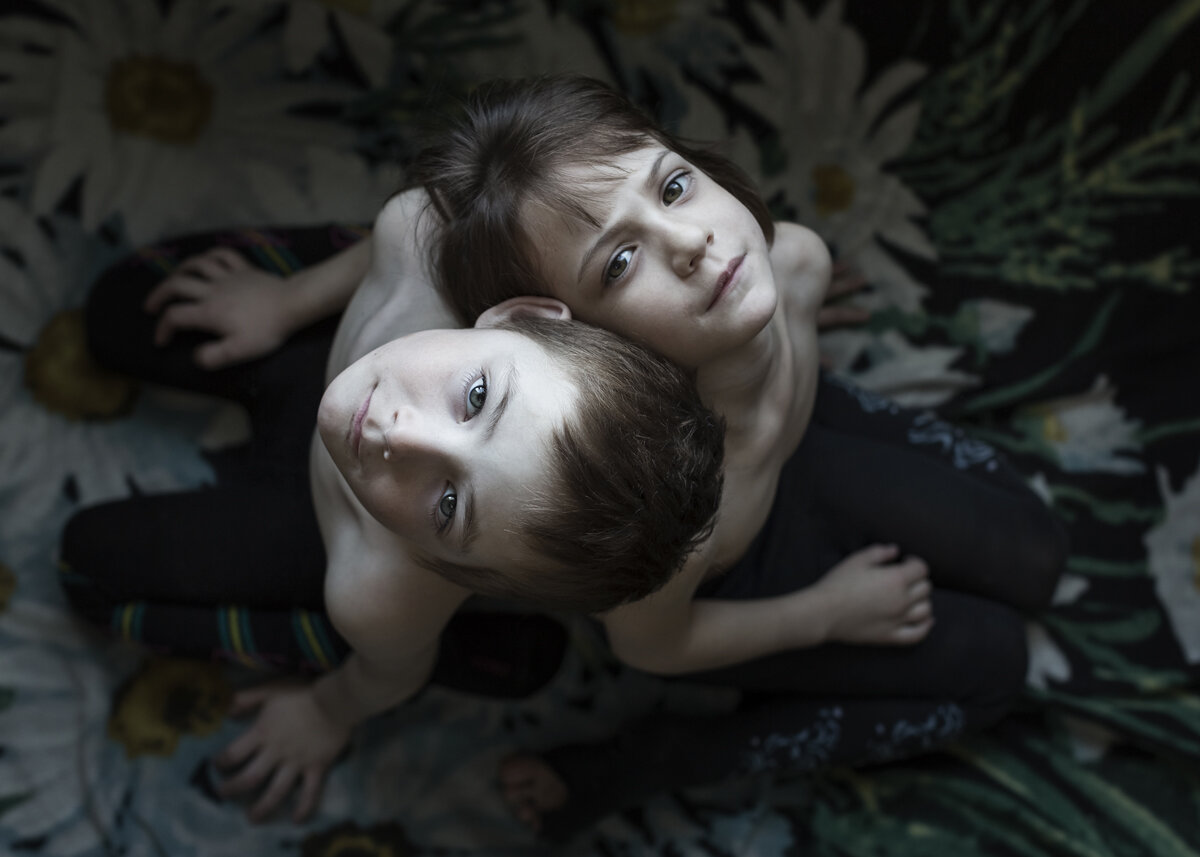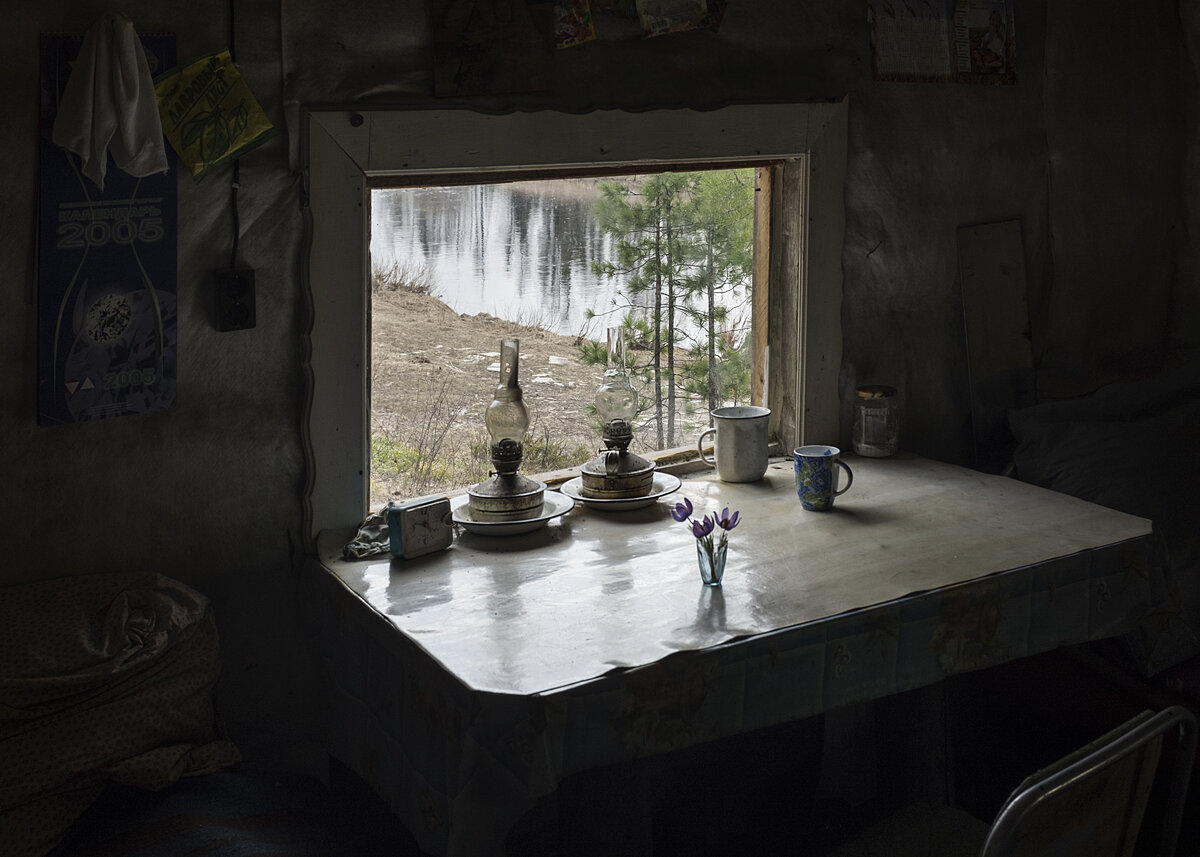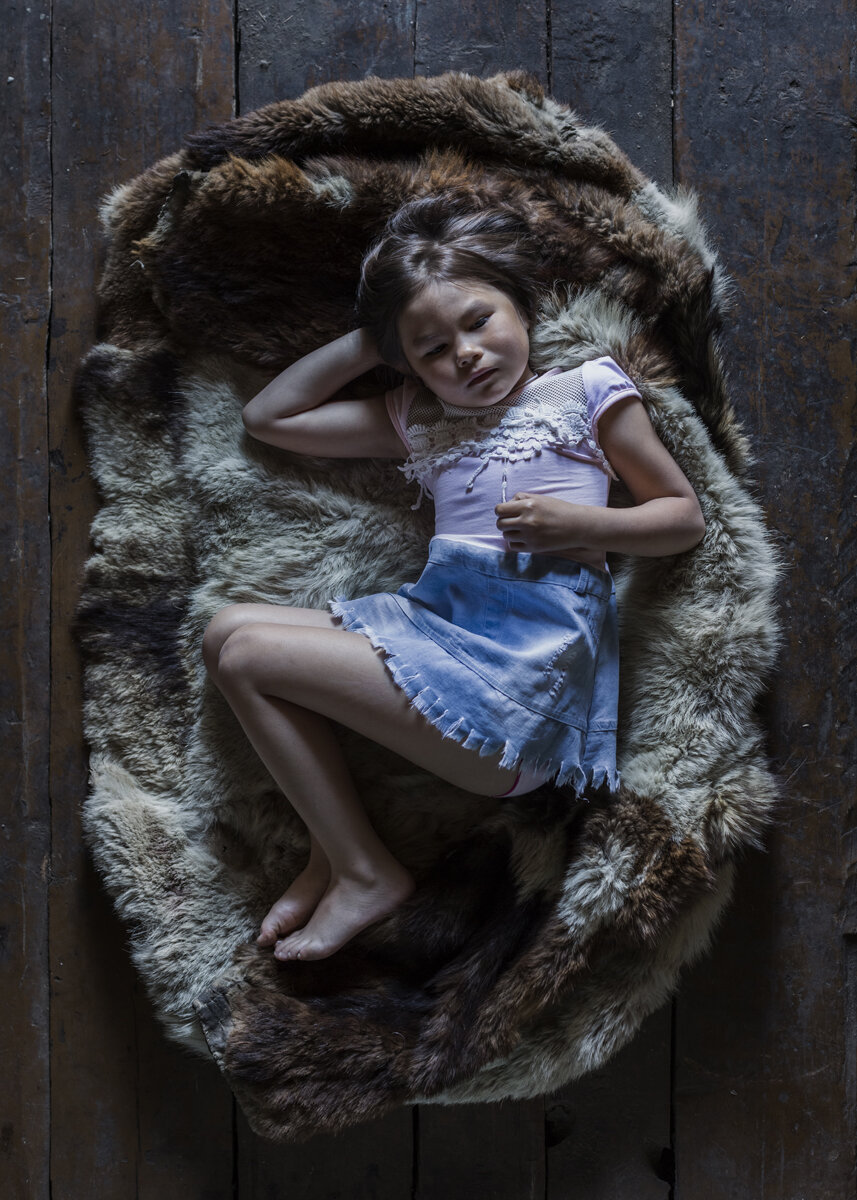Marga and Anais provide the ideal residence. It is a place to hold meetings, and what meetings they are! We Dockers get inspiration and have the opportunity to look at everything from a different perspective. There is also time to calmly think about your work because you have your own place and advice from experts. This is the most important kind of support for artists—a space for life and work, and the opportunity to meet people and engage in dialogue, through which the path becomes clearer.
- Elena Anosova
Docker #28
Elena Anosova
Atlas of the first snow (2015 — ongoing)
We create our history just as our history shapes us. We choose hope. Hope that the way will be found, that there will be food, that all people will return home, that family will reunite and winter will end. About 300 years ago, Anosova’s ancestors founded a small settlement in the Far North of Russia. In the severe conditions of this isolated community, there is a special attitude to nature. Her family still lives there—about 100 people with the DNA of the indigenous minority, the Tungus nation. They are all blood relatives and relatives by marriage, in close vicinity. Modern civilization influences the world, but this remote community preserves its identity thanks to the isolation and severe climate. The landscape, unalterable for ages, gets us thinking: who are we? Where do we come from and, the most important question for the next generations, where are we going?
The name of the settlement can be translated from the Tungus language as ‘island’. It can be accessed only by a helicopter that shuttles twice a month from a small town 300 km away. As the years pass, this process becomes more expensive and rare. People are encapsulated inside this place in close connection with nature and traditions as if they were under the dome. Life for this part of Asanova’s family—her father’s siblings and numerous cousins and nephews—has not changed for centuries in that far-flung area surrounded by pristine wilderness.
Modern civilization penetrates slowly and fragmentarily there; it is intricately woven into the local way of life. Electricity, supplied by a diesel generator, is available only in the mornings and evenings. Temperatures in winter average -45° Celsius. These lands are immersed into the flow of their own life activity, where the past and the present are interlaced in a surprising way.
Who? Elena Anosova
From: Russia
Docking November 6 - November 22 2019
Working on: Atlas of the first snow
About: Climate change
Elena Anosova (b. 1983) is a visual artist working with documentary and art photography, video, archive, and installations. Originally hailing from the region of Baikal (Russia, Siberia), she is currently based in Irkutsk and Moscow. She teaches visual arts (Moscow and S. Peterburg) at Rodchenko Art School, School of Visual Arts, The Russian Presidential Academy of National Economy and Public Administration, Academy Fotografika.
The most important part of her professional activities is devoted to personal, long-term projects that are centered around lives in closed institutions, small communities, and isolation. The impulse of research of such themes arose in a reflection of her teenage period spent at the closed rehabilitation boarding school. Also, Elena Anosova works with subjects of borders, identity and collective memory in the territory of Siberia, Far North, Russian Far East and Baltic Sea borderlands.
Anosova has been a winner of various competitions. She is a recipient of the World Press Photo, Center Project, LensCulture, World.Report Award and others. Her work has been published around the world including National Geographic (USA).
ambassador
KATHARINA MOURATIDI
Artistic director at the Society for Humanistic Photography
The photographs in Elena Anosova's current project Atlas of the first snow are touchingly private. In a poetic visual language and with an unmistakable feeling for the right moment, for the only moment for her photograph, Anosova tells the story of a seemingly untouched idyll: the life of her family in a small village in the far north of Siberia, in the Taiga.
Time seems to stand still there; people are living the same lifestyle as hundreds of years ago. Anosova enchants us with the colours, compositions and concentration of her photographs. We would happily indulge in the beauty of the landscape and the virtuously composed tableaux. When looking at the pictures, however, a restlessness creeps up on us—a slight discomfort. Carefully and subtly placed in the picture, each motif contains a reference to the fragility and transience of life in this small village. With the knowledge that the permafrost soil in Siberia is thawing due to global warming, this seemingly personal document expands into an explosive, politically and socially relevant project. I am very pleased that Elena Anosova is receiving support from Docking Station to further develop this project.


